
Different historical periods have different ranges of acceptable political brutality and different forms of hypocrisy. In this posting we will concern ourselves with two Dutch thinkers active at the edge of the 16th and 17th centuries — Lipsius and Grotius — and their adventures in writing on the amoral interest of power, at the age when this was limited by the intellectual atmosphere and censorship.
Machiavelli and other forbidden books
Seeing through the moral declarations made for the naive seems to be something uniquely appealing to the modern man — in the sense that they appeared in Italy around the 15th century. The common opinion was never pleased with such cheekiness. Niccolò Machiavelli could wrote openly in The Prince (published 1532) on the brutal principles of autocratic rule. But condemnation of this book was all but required from any publicly active person. People were not keen on admitting reading Machiavelli. It was always only their friend who was into these things.
In Poland-Lithuania there were references to Machiavelli in political writing (e.g. Augustyn Rotundus’ Conversation of a Pole with a Lithunian, Rozmowa Polaka z Litwinem, 1564), but we also had our own scandalous treatise called Callimachus’ Advice (Rady Kallimachowe). They were reportedly written by Filippo Bunaccorsi, known as Filip Kallimach (Callimachus), an exile from the papal Rome and a courtier of the kings Casimir IV and John Albert. In reality, it may very well be a fabrication. Anyway Buonaccorsi would advise the kings — and it’s more of an instruction than an analytical text — to expand their power by all means available, including sowing divisions among the subjects and even poisoning the “difficult” ones.
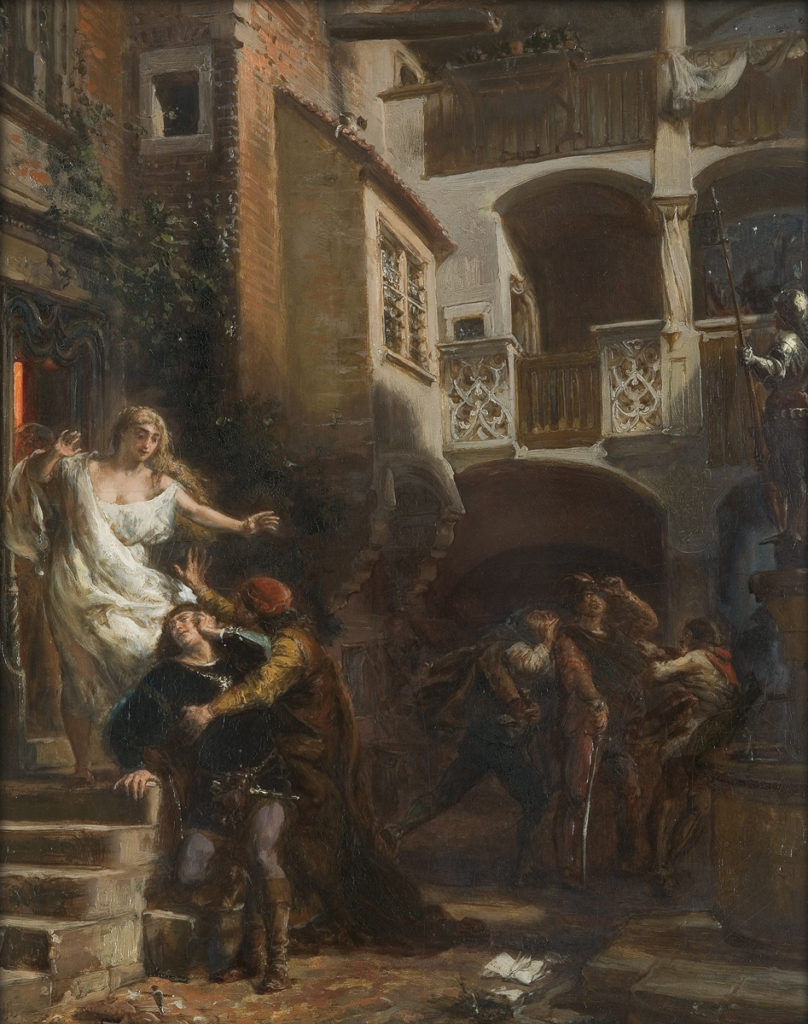
For long centuries the names of Callimachus became, in the Polish-Lithuanian Commonwealth, a synonym of political cynicism and the power center treating the citizens like cattle to be readily sacrificed for political gain. It was also said that he inspired the 1497 expedition to Moldavia, allegedly to make all the nobility extinct during the reign of John Albert (za króla Olbrachta wyginęła szlachta, the Polish saying). If the nobility was physically eliminated, posited this conspiracy theory of sorts, the king could easily suck the blood from the nation with the help of his own protegees and foreign advisors (1).
Tacitus, or living on the ruins of history
Between the 16th and 17th centuries, two Dutchmen wanted to avoid rotting in prison, like Machiavelli or in exile, like Callimachus. The first gentleman of those is known as Justus Lipsius (Joost Lips). A famous scholar of antiquity, he spent some time in Rome as secretary for a cardinal. But his most productive years were spent as lecturer in the University of Leiden, in the Calvinist Netherlands. The country was in the midst of Eighty Years’ War for independence with Spain.
The greatest and most famous of the Lipsius’ accomplishments is his edition of the Latin works of Tacitus. Since this is crucial for our story, let’s take a closer look at this individual.
Tacitus — the greatest Roman historian according to many — lived approximately between the years 55 and 120 CE. It is he who created the adage about examining history sine ira et studio, with no anger or partiality for any of the sides. But to be fair, his opinions are not difficult to discern in his writings.
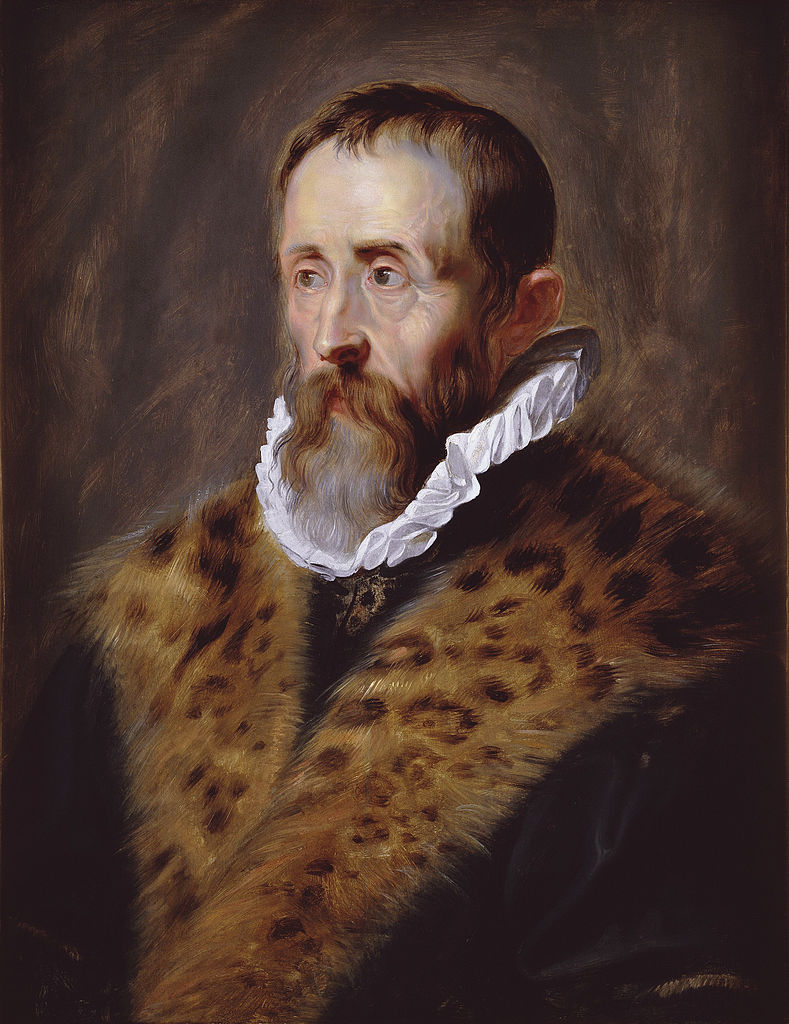
The times and worldview of Tacitus were not all that dissimilar from Machiavelli’s, if you think about it. Just as the Florentine saw his republican city held firmer and firmer by the fangs of Medicis, the Roman had to live in the Empire cemented since 150 years. The senatorial circles, from which the historian came, still remembered the proud times of political liberty of Rome. Tacitus was a child during the reign of Nero. During his adulthood he could see the more stable times of the Flavian and Antonine dynasties. The history written by Tacitus presented, in a cold and unrestrained manner, the dealing of caesars and the bloody machinations of their confidants.
In contrast to the smooth-spoken orator Cicero and the patriotic aggrandizer Livy (another classical Roman historian), Tacitus is not afraid of speaking with candor, in short, utilitarian sentences. On the other hand, from the perspective of post-Roman Europe, he was still one of the classical wise men, whose authority is always handy for supporting your argument. Which is why Tacitus turned out to be attractive for many intellectuals, even more so after 1574, when Lipsius published the major edition of his works.
The Roman backup
The Lipsius’ argument in his Politica (1589) is masterfully packaged. Technically, he doesn’t say here anything himself. The whole book is a compilation of quotes from famous ancient authors (and thus is close to a cento). It is only at the beginning that Lipsius mentioned his previous work On Steadfastness (De constantia, 1584/1584), where he referenced the old Stoic tradition of not yielding in your mind to the changing whims of fate. (It was a broader trend at the time, in which e.g. Jan Kochanowski also participated.) But whereas in De constantia Lipsius offered his advice to inhabitants of polities — and he advised obedience — in Politica he moves on to drawing a program for principes — “princes” — rulers, that is.
At the time of publishing Politica, the Eighty Years’ War for independence of the Netherlands from the rule of the Spanish king lasted already for 21 years. A whole generation was raised during the fight, with its horrific sieges, which often brought famine and even massacres of the people caught inside. The tendencies expressed in Politica could be particularly attractive because the public was exhausted by the sacrifices and cruelty of the conflict.
According to the Dutch historian Jan Waszink — on whose ideas this text is largely based (2) and who currently works on a project in collaboration with the Polish Academy of Sciences — the references to the Tacitean language let the political writers get away with controversial views thanks to maintaining that they were only referencing classical authors.
One has to remember that the whole European culture up to the World War I took the Roman precedents very seriously. Of course, people took different strands from this tradition, the monarchist (caesarian) or republican ones. Tacitus, as well, can serve both as a source of longing for civic virtue or as a specimen of hard-boiled political observation. In the scholarly literature this is known as, respectively, “red” and “black” Tacitism (3). Lipsius was more interested in that latter, “black” aspect. It did not stop him, however, from attacking Machiavelli for his cynicism, because, unlike Lipsius (said Lipsius), he had amoral intentions.

Lipsius, backed up this way by Tacitus’ authority, dared to suggest that a prince (i.e. the ruler) can disregard “ordinary” morality, if it is necessary for the higher goal of happiness and cohesion of the political community (though we don’t know how we are supposed to understand the meaning of happiness here). Taking moral considerations too seriously on the highest step of the social ladder, says Lipsius, risks making the authority weak. Another one of his ideas was imposing one religion on all inhabitants of a country, in the service of social cohesion and tranquility. (At least on the outside; Lipsius would allow believing anything in silence but not openly.)
It could seem that the author of Politica should not be so much alone with such a view in his times. But it was his cynical and pragmatic-looking message that earned him criticism of Protestants as well as a place on the Catholic Index Librorum Prohibitorum (the list of the forbidden books) (4). The actual issue here was the thought that questions of faith should submit to political needs of the state. Lipsius did not attempt to impose the true faith on people, he seemed not interested in that — he cared more about any uniform faith, in the name of interest of state.
Interestingly, in 1591 Lipsius would return to the southern Netherlands (modern day Belgium), convert back to Catholicism and become an advisor to the Habsburgs.
Too brilliant young man disappoints the parliament
Not long after Lipsius’ departure from Leiden, a Hugo Grotius (Huig de Groot) arrived. The year was 1594 and Grotius was only 11 years old. It was a young age for a university student even then. In 1601, the States of Holland and West Friesland commissioned him to write a history of the Dutch fight against the rule of the Spanish Habsburgs.
Netherlands (at the time of their independence and earlier) were divided into a few provinces, and Holland was among them. The States were a kind of a local parliament, housing representatives of nobles and cities. It was more or less a universal European pattern. The Prussian States (a sejmik/dietine of Polish Prussia) were structured in the same way, as was, formally, the Polish Sejm, where the representatives of cities had been simply stripped of their voting rights. By the same token, the decision system with its requirement of unanimity (usually not strictly enforced in practice), was inherited everywhere from the Medieval ideas of collective decision making.

When asking the young intellectual to write their history, the Dutch wanted to support their legend and legitimacy of their struggle against the Spanish Crown. Similar message can be seen in the song Wilhelmus von Nassouwe (the today’s anthem of The Netherlands), written around 1570. It speaks at length that the Dutch leader — William I of Orange — is a pious man of illustrious descent, who actually wanted to be faithful to the king of Spain, but the latter unjustly treated his subjects etc. The States of Holland probably expected something of this sort, only in the form of a huge historical volume.
As is fit for a misunderstood genius, Grotius has drawn his project with even greater ambition than was imagined by his patrons. Not only did he use the Tacitean examples — which should, after all, lend some classical luster to the history of the Netherlands — but he also wanted to be a cold and sophisticated political analyst, just like his ancient predecessor. Hence even the positive characters in the Grotius’ history (like William I or the English queen Elizabeth) have calculating minds, often a cynical approach to religious matters, and say different things than they are intending to do. The young Grotius aimed at a meaty, deep historiography, not a mindless paean.
In 1612, when Grotius finished the first version of his work, the outraged parliament of Holland put it on hold. It would be published only after his death, in 1657.
What is reason of state in religion
The concept of “reason of state” (fr. raison d’État), so eagerly used today in Poland [apparently not so in Anglophone world], is an early modern creation. Traditional, Medieval view on politics did not include state as we understand it today.
The Polish world państwo [literally means state, sounds something like lordship etymologically] actually explains the old outlook quite well. People live in the dominion of some lord (the prince in early modern parlance) and are his subjects. It is a human relation, there is generally no “state” here as an enduring, independent abstraction. At the same time, very importantly, they are all members of one religious community, the Church, which collaborates closely with the prince. This is the Medieval substructure.
In the advanced Middle Ages in some countries such as France and Poland, politically divided and threatened by foreign domination — of England, or the German Holy Roman Empire — there were some proto-national concepts entering this stage.
Incidentally in both these countries the idea of raison d’État apppears in the 17th century as, to a large extent, a tool of subverting the old rights and liberties of the society. This is no longer about conciliation or a partnerlike balance between the prince and the subjects. Prince becomes something of a priest of the newly invented higher abstraction, the state, to which people should submit. Of course the French cardinal Richelieu was able to do a lot more compared to what the entourage of king John Casimir pulled off later in the Polish-Lithuanian Commonwealth. But the intellectual trend is closely related. The English king Charles I Stuart, one executed in 1649 r., was arguing about similar things with the Parliament.
But we should not forget that, apart from the prince, there is another big structure left by the Middle Ages: the Church. And the concept of raison d’État applies here as well! You see, in religious matters, one should also submit to the interest of state. If you are an individual subject who follows sincerely another faith: tough luck, you will be administratively forced into the Church allied with the State (the Church here can be Catholic or represent one of the many branches of Protestantism.) Intellectual support for these ideas was built by Lipsius.
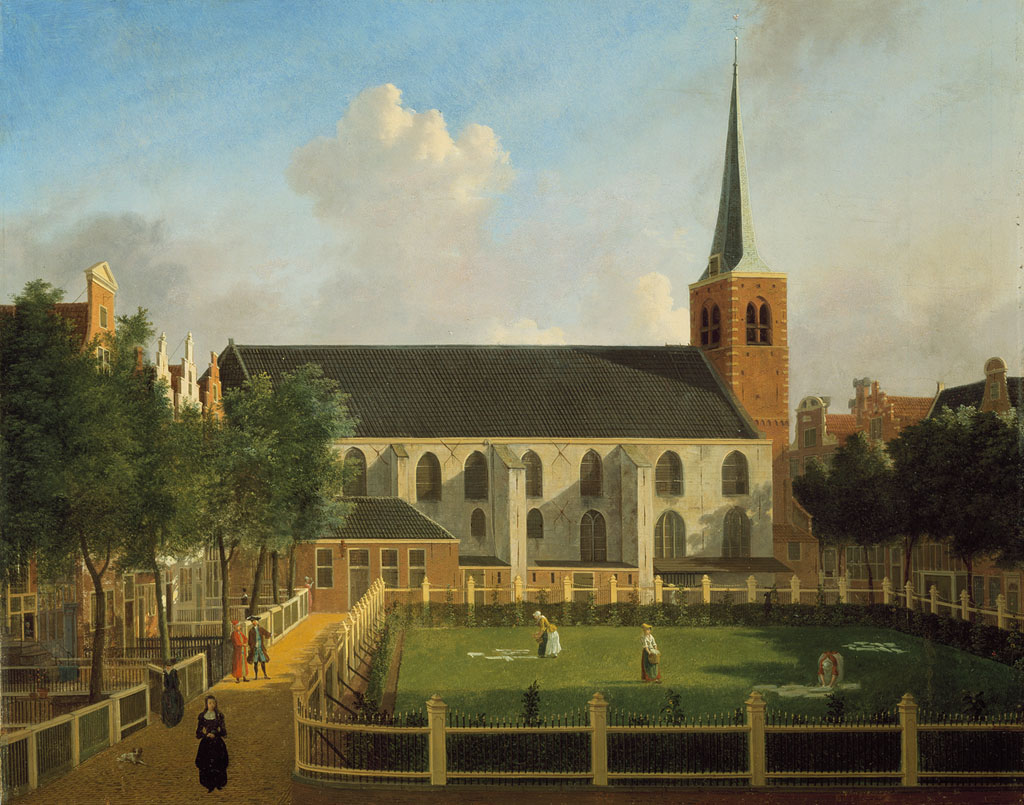
But would be politically deemed the One True Faith, be it Catholic or Protestant, was also be subordinated to the interest of state. Catholic France would ally Protestants and Turkey in the Thirty Years’ War. It is somewhat possible that suppressing heretics is not (sometimes, to some extent) in the interest of state. Oh the horror, for the mentality of these days — how can one allow such a diversity of beliefs and leave the mistaken people without their chance of salvation on the burning stake. It was leaving the Church without the help of the iron fist of the State.
For holding opinions like that, as we will see shortly, Grotius was promoted from an unpublished intellectual (who was nevertheless making a political career) to an escapee from the executioner’s axe.
There is one more thing that I want to emphasize since it is a genuine hurdle in understanding disputes at that time. Today we are used to viewing religious tolerance from the liberal point of view, thinking of liberty of conscience as one of the fundamental rights of human and citizen. In early modern Europe, this was an extremely niche belief. [People believed in rights, but this was not among them.] Usually the justification of tolerance was purely pragmatic: let us prevent pointless fights, sure, but generally the state has the right to enforce religious unity. In the Polish-Lithuanian Commonwealth, the 16th century was the time when people started to think of liberty of conscience as an innate right of citizens regardless of the cost-benefit analysis of the powers that be. Transylvania (the rump state left from Hungary after the Turkish conquest) in 1568, with the edict of Torda, granted the local communities the right of freely electing their priests and discussing religion. But placing this kind of thinking in history of Western Europe of the period is usually misleading.
By the way, I think it is useful to distinguish between religious tolerance and liberty, more so since distinctions of this kind are returning today in the context of conflicts about minority rights in Poland. Tolerance can often be condescending, calculated and predicated on docility of the tolerated. Liberty, though, is rooted not in a decision of authority, but in the innate right of citizens to do whatever they want with no push from others — and to fully participate in the community (the commonwealth, in the early modern terms).
And from this point of view we cannot exactly talk of “religious tolerance” during the whole history of the Polish-Lithuanian Commonwealth. It is true that it was a country of a shaky tolerance for dissidents — with a downward trends — since more or less the middle 17th century. During the previous one hundred years, though, it was a country with a marked aspiration toward something more, to religious liberty, where you can fully and equally participate and benefit from the commonwealth, no matter your creed. The beginnings of this are in the suspension of execution of decisions issued by courts of the Church against laypeople; this was made way back during the reign of Sigismund Augustus (1548-1572).
The great escape on the Louis’ lap
Meanwhile, the affair that we are going to describe was strictly about the pragmatic tolerance — and it made Grotius live through the adventure that reminds me of the Edward Snowden’s escape to the Putin land. One could also say it was about what the state religion of Republic of the Seven United Netherlands should look like.
The independent Netherlands were a Calvinist (Reformed) state. Only the beguinages (like the one in Amsterdam) were left on the surface out of Catholicism, as they were formally private property. Lutheran worship was possible only when special conditions were observed (designed not to offend the Calvinists), and even then, only in cities. Still, it was a relatively tolerant state, for the contemporary Europe. The Netherlands were the destination of many Protestant exiles and dissidents from England and other countries.
One of the most controversial Calvinist doctrines is the strong version of predestination, that says that God in the very beginning (being, of course, all-knowing) chose the people who will be saved and those will be damned. For all practical purposes, nothing can be done about this either with faith or with good deeds. Arminianism was an alternative trend, which believed that generally one can be saved by God-given grace, and also, presumably, reject salvation regardless if one if “predestined” to it. (But I don’t advise anyone to rely on my understanding of theology.)
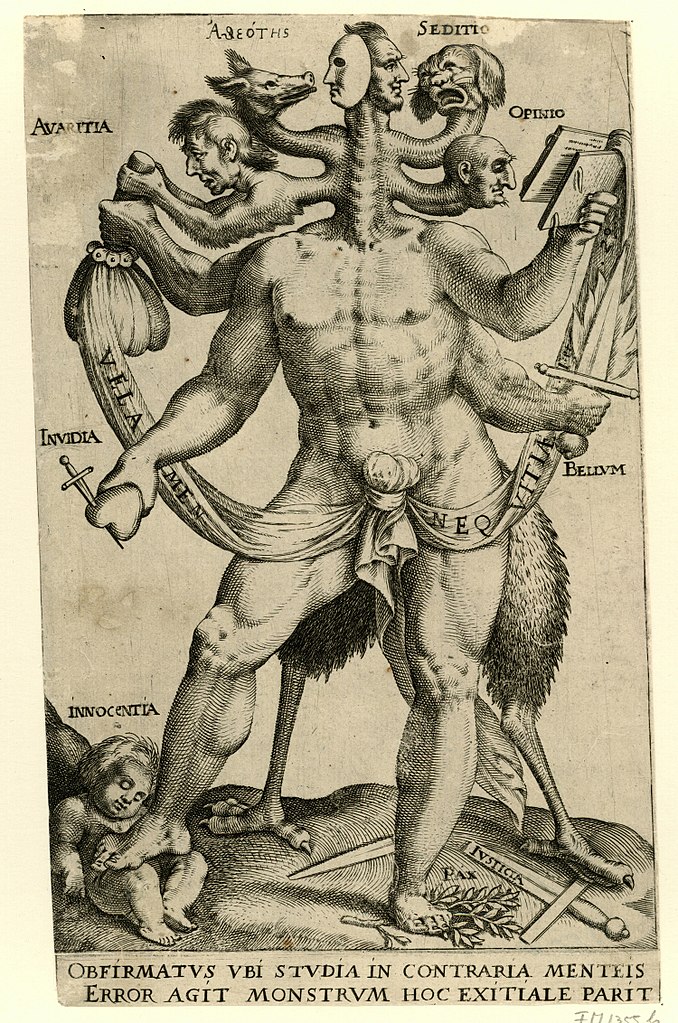
Anyway, the case quickly became a political one, and went far beyond disagreements between the supporters of Jacobus Arminius (a theologian from our good old University of Leiden) with his orthodox Calvinist opponents. The political allure of Arminianism came from:
- the recognition of supremacy of secular authority over religion —
- and from the somewhat less hostile outlook on Catholicism (which was attractive for the circles that hoped for a peace with Spain.)
Reasons of this kind made Hugo Grotius and the powerful Johan van Oldenbarnevelt support the Arminians. The former held, since 1613, the office of pensionary of Rotterdam. The latter was, since 1583, the landsadvocaat of Holland and Friesenland. Despite the currently exotic-sounding names, these were the chief offices of cities and provinces in the republican system of Dutch provinces. The English king James I Stuart was also, for some time, an Arminian sympathizer.
The Grotius’ argumentation during the conflict around the Remonstrants (as Arminians came to be called after their submission of religious Articles of Remonstrance to the States General in 1610) was indeed based on his assumption of free rein of secular powers.
Grotius pointed, for example, to the appointment of ever more radical Conrad Volstius to the university chair vacated by deceased Arminius. Volstius was accused of Socinianism, that is, believing in unitarian doctrines rejecting the existence of Holy Trinity (the Socinians had their strong presence in Poland-Lithuania as the Polish Brethren.) The university authorities, said Grotius, do not have to listen to the Church authorities. Which at that time, in most European universities from Cambridge through the Sorbonne to Kraków, would be an extremely bold position. The universities were seen indeed as ecclesiastical institutions, tasked with shaping minds in the “correct” way.
Thanks to van Oldenbarnevelt’s support, the Estates of Holland refused to authorize an ecclesiastical action against Remonstrants. But the opponents of Arminianism had the backing of orthodox clergy and the dynasty of princes of Orange (Oranje in Dutch), which was led then by the warlike Maurice (the one with whom the traveling Jakub Sobieski conversed). Maurice of Orange was the Captain-General (commander-in-chief) of the Dutch Republic since 1587. He pushed towards continuation of the war against Spain and supported anti-Remonstrant preachers.
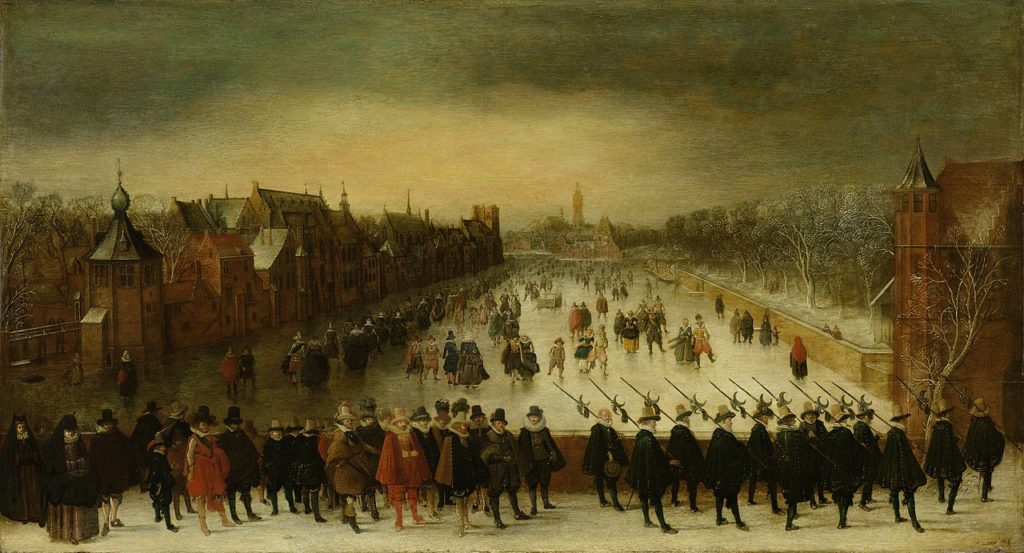
At the end of the second decade of the 17th century the conflict was violently resolved. The provinces, with the exception of Holland, supported the Calvinists in the States General and in 1617 called for a synod meant for dealing with the Arminian question. The Remonstrant-republican faction organized municipal militia — waardgelders — but they were subsequently disarmed by Maurice’s men. The anti-Remonstrants overtook the synod of Protestant priests in Dordrecht (1618-1619), where Calvinists from whole Europe were present. As one could well predict, the Armian views were soundly condemned.
On the 28th of August 1618 Van Oldenbarnevelt, Grotius and other supporters of tolerance for Remonstrants were arrested by the order of States General. Toppled Van Oldenbarnevelt would be executed a year later, condemned for high treason against the whole Republic.
The office of landsadvocaat would be renamed to “grand pensionary”, to distance it from the tradition of the fallen politician. It won’t stop the Dutch from the next public display of bloodthirsty violence when the mob would tear apart the body of Johan de Witt, the grand pensionary of Holland, on the streets of The Hague in 1672. Of course, de Witt would also owe this largely to his defense of republicanism against the Orange princes.
Grotius, meanwhile, was sentenced to life inprisonment in the Loevestein castle in Gelderland, one of the Dutch provinces. There he would remain stuck for around three years. In 1621 his wife Maria van Reigersberch hid him in a book chest, and tasked their maid, Elselina van Houwing, with transporting the chest with “borrowed books” to a safe house in southern Holland. Thence Grotius, who was 38 at the time, advanced to the southern part of the Netherlands, under Spanish control, and then to Paris. The Dutch States General set his wife free once they saw that it is too late to hope for recapturing Grotius (5).
In France Grotius was given a state pension. In 1626 cardinal Richelieu, the real head of the local royal regime at the time, wanted to hire him as an advisor (6), and later the thinker would become the ambassador of Christina, queen of Sweden.
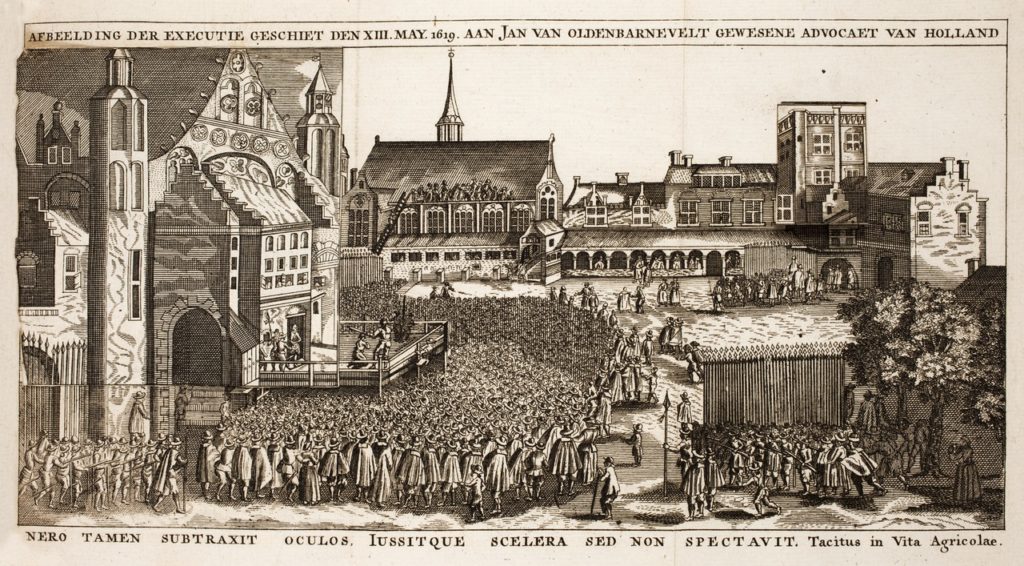
Grotius dedicated his De jure belli ac pacis (On the Law of War and Peace, 1625) — one of the most important books in the history of international law — to king Louis XIII. What is interesting, though understandable in the context of his experiences, here he rejects the idea of reason of state, in favor of extolling peace and a notion of justice based on natural law. However, as points out Jan Waszink, cited above, the realist-Tacist outlook can be recognized in the fact that Grotius argues for the utility and profitability of peace, not limiting himself to a purely moralistic case (7).
And so ended the adventure of two Dutchmen who were smuggling Machiavellism as Tacitism in their books. It is fascinating to picture in one’s mind Grotius caught up in one of the sad historical episodes where the democratic majority, allied with the army, aristocracy and Church establishment, successfully attacked republican liberty. It is not hard to understand that he devoted himself to abstract musings about world peace, and relatively meekly, out of necessity, fit into the life of a famous émigré in Paris.
Notions like “reason of state”, interest of the people in power, sacrificing morality or interest of citizens to the interest of the state are not easy to study. There is a wide spectrum between the mere awareness of existence of these factors and seeing them as principles worthy of applying.
Neither Tacitus, Machiavelli nor Grotius were actual supporters of tyranny or autocracy. They were only more willing to describe politics in a more cynical or frank manner than apologists of this or that political regime. Lipsius however, it seems, was an honest believer in “tough” political power as the best way, to which the individuals and the political people (populus) should adjust.
Should we think of state as having it own independent interest, which is ultimately to take precedence before the interest of citizens or the truth — concerning religion, or in general? It is probably a question that will never be put to rest as long that there are intellectuals thinking about politics.
Footnotes
(1) More for example in: Jerzy Zathey, Z dziejów staropolskich opinii o Kallimachu (in:) Kultura i literatura dawnej Polski. Studia, Warszawa 1968.
(2) Jan Waszink, Lipsius and Grotius: Tacitism, “History of European Ideas“, 36 (2010), s. 375-385, DOI: https://doi.org/10.1016/j.histeuroideas.2010.06.003
(3) Ibidem, p. 161.
(4) Compare the article on Lipsius in Stanford Encyclopedia of Philosophy.
(5) The story taken from the webpage: http://www.historyoflaw.info/hugo-grotius-escape-from-prison.html
(6) Erik Thomson, France’s Grotian moment? Hugo Grotius and Cardinal Richelieu’s commercial statecraft, “French History”, 4 (21), 2007: https://academic.oup.com/fh/article-abstract/21/4/377/583837
(7) Waszink, p. 166-167.
Start the discussion